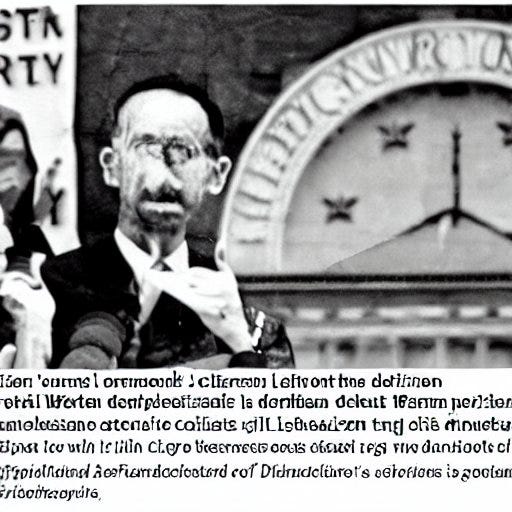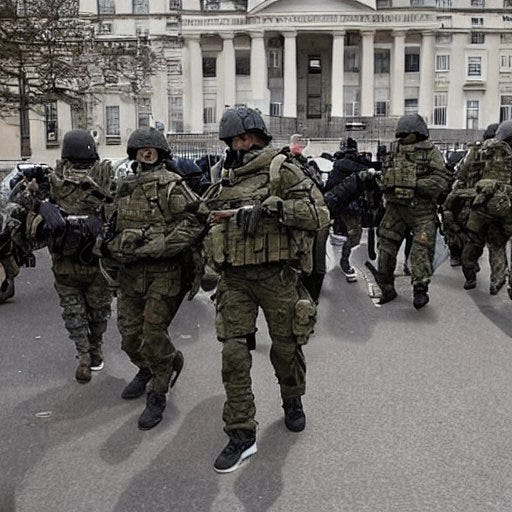Biosecurity-cum-Biofascist State: The Horror of Compliance
By Ramesh Thakur: Australian National University.
The ease with which the majority of people slipped into compliance with lockdown restrictions was a distressing surprise. The acceptance of facemasks in community and children’s school settings was a disappointment. Governments’ success in turning Western liberal democracies into citizen-informant states was both shocking and dispiriting.
In Australia this led many to ruefully recall a quip from the late Clive James. The problem, he said, is not that too many Australians are descended from convicts, but from prison guards. Except citizens enthusiastically becoming informers on family, friends, neighbours and colleagues was not uniquely Australian but a common phenomenon across the Western world (and also some but not most others).
All institutional checks on overreach and abuse of executive power – every single one of them, from legislatures to the judiciary, human rights machinery, professional associations, trade unions, the Church and the media – turned out to be not fit for purpose and folded just when they were most needed. Waystations on the journey to where we are today with a biosecurity-cum-biofascist state include the national security, administrative and surveillance states.
National Security State
The liberal democratic state reconciles two principles that can be in tension: rule by the majority and protection of minorities. It does so by requiring the government to obtain consent of the people through regular elections conducted on the basis of universal adult suffrage, but at the same time placing limits on the exercise of state power, prioritising individual rights and providing institutional bulwarks against the state encroaching on citizens’ rights.
During the Cold War the Manichean framing of the worldwide struggle against the dark forces of communism led to the rise of the national security state in which limitations on state powers began to be steadily, and sometimes stealthily, lifted. The size and powers of the military-intelligence complex was progressively expanded and individual rights and freedoms were circumscribed.
Acting abroad in violation of core American values – extrajudicial assassination of foreign enemies as determined by secretive processes, overthrow of elected regimes deemed hostile to US interests, military and economic assistance to friendly dictatorships – was also institutionalised.
The administrative state had a mainly internal focus and facilitated the circumvention of the traditionally separated executive, legislative and judicial spheres. In that sense and to that extent this represented encroachments on constitutional governance.
Agencies and departments displaced duly enacted legislation with regulations and replaced judicial processes with administrative determinations.
Think of the ability of tax authorities to confiscate private property without court orders and, in the last three years, powers given to police to impose heavy instant fines and the manner in which the Trudeau government froze the bank accounts of not just the protesting truckers, but of anyone who had donated even modest amounts to the Freedom Convoy.
When administrative agencies can create, adjudicate and enforce their own rules with no need for parliaments and courts, the administrative state has arrived, prompting David E. Lewis to ask: ‘Is the Failed Pandemic Response a Symptom of a Diseased Administrative State?’
Meanwhile, the reach of technology had steadily expanded the ability of the state to snoop on people. It took the exposures of Edward Snowden to awaken us to the extent to which we now live in a digitised surveillance state. Some governments, and by no means only totalitarian regimes, require telecommunications, social media and home entertainment technologies to be intercept-compliant and filter and censor content on official request. This gives governments a measure of control not simply over our acts but also our speech and thoughts.
Biosecurity-cum-Biofascist State
‘Tech tyranny’ reached its apotheosis during the pandemic with the unholy polygamous marriage between Big Government, Big Pharma, Big Tech and Big Media/Social Media. Only the naive would believe that governments would now willingly, let alone voluntarily, roll back their vastly expanded powers to control people’s behaviour, speech and thoughts.
The respected news agency Associated Press conducted a year-long investigation into the mass surveillance technology that was installed on people’s phones for contact tracing to keep their community safe from the coronavirus. On 21 December, it reported:
From Beijing to Jerusalem to Hyderabad, India, and Perth, Australia … authorities used these technologies and data to halt travel for activists and ordinary people, harass marginalized communities and link people’s health information to other surveillance and law enforcement tools. In some cases, data was shared with spy agencies.
Have the pandemic management responses, deploying military-grade propaganda and psychological manipulation, been national security countermeasures and not public health directives all along, as argued by Philip Altman and his team? This thesis was argued in Brownstone articles in November–December by Debbie Lerman and Jeffrey Tucker.
Daily Sceptic editor Will Jones asked similarly if the pandemic was orchestrated as a trial run for checking the infrastructure and preparedness for responding to a biological attack. There’s some evidence to suggest that a pandemic plan from 2007 was put into action when the opportunity arose in 2020.
Jones followed up by noting how the UK deployed counterterrorism units to crush scientific and social media dissent on lockdowns and vaccines. I am in no position to evaluate these claims. But securitisation of the pandemic response is the one thing that would explain the extraordinary efforts to enforce the stringent measures pending the development of vaccines, and then the remarkable shortcuts taken to roll them out under rushed trials, with no long-term efficacy and safety data, and downplaying the explosion of (greatly underreported) serious adverse events.
Finally, how to explain the appointment of Sir Jeremy Farrar as the WHO chief scientist in 2023, other than as brazen gaslighting of the public? Both hailed and reviled as the UK’s answer to Anthony Fauci as among the most influential pro-lockdown advisers, he was one of the original authors to dismiss the lab-leak theory in a coordinated campaign of misinformation.
On 30 January 2020, he tweeted: ‘China is setting a new standard for outbreak response and deserves all our thanks.’ His words had closely echoed that of the WHO director general himself. Combined with the pursuit by a powerful coalition of Western countries of an expansive global pandemic treaty that would greatly strengthen the role of the WHO director general and regional directors to compel countries to implement its directives, this is yet another strand in the institutional infrastructure of a health permacrisis that has cut deep inroads into citizens’ liberties in recent years.
This is the year when we will learn if Covid illiberalism will begin to be rolled back or has become a permanent feature of the political landscape in the democratic West. Although the head says to fear the worst, the eternally optimistic heart will still hope for the best.
Ramesh Thakur, a Brownstone Institute Senior Scholar, is a former United Nations Assistant Secretary-General, and emeritus professor in the Crawford School of Public Policy, The Australian National University.






